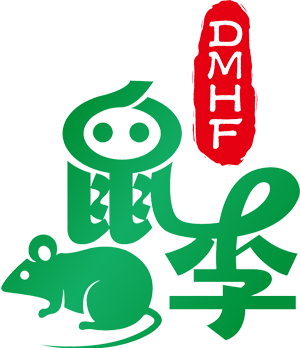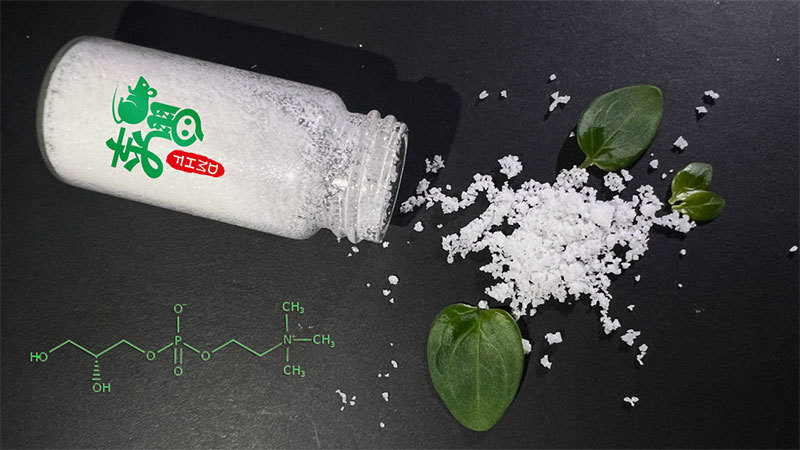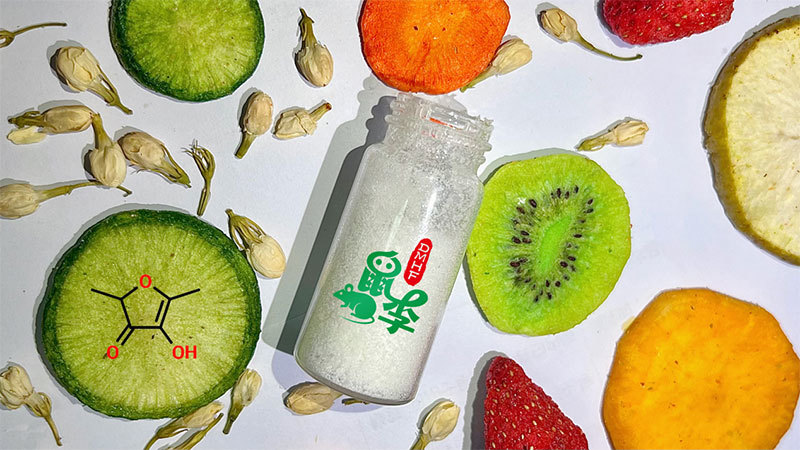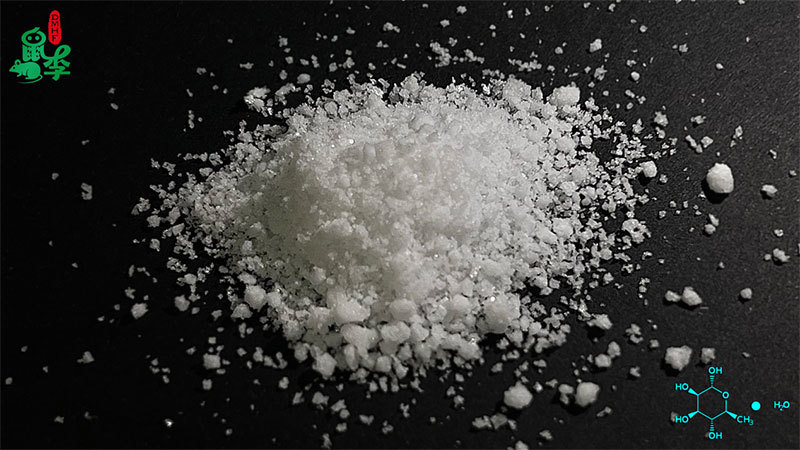Products


- Description
- Information
- Application
-
1-Deoxynojirimycin (DNJ), a natural alkaloid, was first discovered in the mulberry tree (Morus alba L.). DNJ is also found in small amounts in several other plants and microorganisms, such as hyacinth, wild grasses, and Bacillus species. However, the DNJ content in mulberry trees is significantly higher than in other known sources.
In mulberry trees, DNJ is primarily distributed in the leaves, roots, and branches, with the highest concentration in the leaves, accounting for about 0.1% of the dry weight. Additionally, mulberry leaves constitute the largest portion of the tree's dry biomass, approximately 65%. Consequently, mulberry leaves have become the primary natural source of DNJ.
DNJ is a multifunctional active compound widely used in the management of metabolic diseases such as diabetes, hyperlipidemia, and hypertension. It also has significant effects on cardiovascular health and anti-inflammatory responses, making it an essential ingredient in the development of functional foods, dietary supplements, and pharmaceuticals.
-
Synonyms
Duvoglustat;BAY-h-5955;Moranoline;1-dNM;1-DNJ;D-1-Deoxynojirimycin;moranolin
CAS No.
19130-96-2
Formula
C6H13NO4
M.W
163.17
Purity
1% ~ 98%, Customized
EINECS
606-239-2
Melting Point
196-198°C
Boiling Point
361.1±42°C
Flash Point
197.3±18.5°C
Solubility
Soluble in water
Appearance
White solid powder
Packing
1KG * 20 bags * carton
-
1. Blood Glucose Regulation
- Diabetes Management: As an effective α-glucosidase inhibitor, DNJ reduces the rapid rise in blood glucose levels by inhibiting the digestion and absorption of carbohydrates in the gastrointestinal tract. It can be used for diabetes prevention and as an adjunct treatment.
- Improvement of Insulin Pathways: Its active components help regulate insulin-related metabolic factors, making it suitable for managing metabolic syndromes associated with diabetes.
2. Anti-Hyperlipidemic Effects
- Reduction of Cholesterol and Fat Accumulation: DNJ promotes lipid breakdown and fatty acid oxidation by activating AMPK and PPAR-α expression. This effectively lowers levels of total cholesterol (TC), low-density lipoprotein cholesterol (LDL-C), and triglycerides (TG), aiding in the management of hyperlipidemia.
3. Cardiovascular Health
- Antihypertensive Effects: Studies have shown that DNJ improves vascular function and lowers blood pressure by enhancing nitric oxide (NO) activity, making it suitable for the auxiliary treatment of hypertension.
- Improvement of Vascular Reactivity: DNJ regulates vascular contraction and relaxation responses, maintaining endothelial health and preventing cardiovascular diseases.
- Inhibition of Platelet Aggregation: It reduces platelet aggregation caused by ADP and collagen, lowering the risk of thrombosis.
4. Anti-Inflammatory Applications
- Reduction of Inflammatory Factors: DNJ inhibits the production of pro-inflammatory cytokines (such as IL-6 and TNF-α) and suppresses the expression of iNOS and COX-2, making it useful for alleviating chronic inflammation-related diseases.
5. Functional Foods and Dietary Supplements
- As an important active compound, DNJ is widely used in functional foods and dietary supplements aimed at lowering blood sugar, reducing blood lipids, and managing hypertension. It is suitable for developing products targeting diabetes prevention and cardiovascular health.
6. Pharmaceutical Industry
- Drug Development: DNJ serves as a potential active pharmaceutical ingredient for the treatment of diabetes, hyperlipidemia, hypertension, and related metabolic diseases.
Related research information
Synonyms | Duvoglustat;BAY-h-5955;Moranoline;1-dNM;1-DNJ;D-1-Deoxynojirimycin;moranolin |
CAS No. | 19130-96-2 |
Formula | C6H13NO4 |
M.W | 163.17 |
Purity | 1% ~ 98%, Customized |
EINECS | 606-239-2 |
Melting Point | 196-198°C |
Boiling Point | 361.1±42°C |
Flash Point | 197.3±18.5°C |
Solubility | Soluble in water |
Appearance | White solid powder |
Packing | 1KG * 20 bags * carton |
Key words:
Previous Page
Next Page
Related research information
1-Deoxynojirimycin (DNJ), a natural alkaloid, was first discovered in the mulberry tree (Morus alba L.). DNJ is also found in small amounts in several other plants and microorganisms, such as hyacinth, wild grasses, and Bacillus species. However, the DNJ content in mulberry trees is significantly higher than in other known sources.
In mulberry trees, DNJ is primarily distributed in the leaves, roots, and branches, with the highest concentration in the leaves, accounting for about 0.1% of the dry weight. Additionally, mulberry leaves constitute the largest portion of the tree's dry biomass, approximately 65%. Consequently, mulberry leaves have become the primary natural source of DNJ.
DNJ is a multifunctional active compound widely used in the management of metabolic diseases such as diabetes, hyperlipidemia, and hypertension. It also has significant effects on cardiovascular health and anti-inflammatory responses, making it an essential ingredient in the development of functional foods, dietary supplements, and pharmaceuticals.
1. Blood Glucose Regulation
- Diabetes Management: As an effective α-glucosidase inhibitor, DNJ reduces the rapid rise in blood glucose levels by inhibiting the digestion and absorption of carbohydrates in the gastrointestinal tract. It can be used for diabetes prevention and as an adjunct treatment.
- Improvement of Insulin Pathways: Its active components help regulate insulin-related metabolic factors, making it suitable for managing metabolic syndromes associated with diabetes.
2. Anti-Hyperlipidemic Effects
- Reduction of Cholesterol and Fat Accumulation: DNJ promotes lipid breakdown and fatty acid oxidation by activating AMPK and PPAR-α expression. This effectively lowers levels of total cholesterol (TC), low-density lipoprotein cholesterol (LDL-C), and triglycerides (TG), aiding in the management of hyperlipidemia.
3. Cardiovascular Health
- Antihypertensive Effects: Studies have shown that DNJ improves vascular function and lowers blood pressure by enhancing nitric oxide (NO) activity, making it suitable for the auxiliary treatment of hypertension.
- Improvement of Vascular Reactivity: DNJ regulates vascular contraction and relaxation responses, maintaining endothelial health and preventing cardiovascular diseases.
- Inhibition of Platelet Aggregation: It reduces platelet aggregation caused by ADP and collagen, lowering the risk of thrombosis.
4. Anti-Inflammatory Applications
- Reduction of Inflammatory Factors: DNJ inhibits the production of pro-inflammatory cytokines (such as IL-6 and TNF-α) and suppresses the expression of iNOS and COX-2, making it useful for alleviating chronic inflammation-related diseases.
5. Functional Foods and Dietary Supplements
- As an important active compound, DNJ is widely used in functional foods and dietary supplements aimed at lowering blood sugar, reducing blood lipids, and managing hypertension. It is suitable for developing products targeting diabetes prevention and cardiovascular health.
6. Pharmaceutical Industry
- Drug Development: DNJ serves as a potential active pharmaceutical ingredient for the treatment of diabetes, hyperlipidemia, hypertension, and related metabolic diseases.
Related research information
Related Products
Stay in Touch
* Note: Please be sure to fill in the information accurately and keep the communication unblocked. We will get in touch with you as soon as possible.













